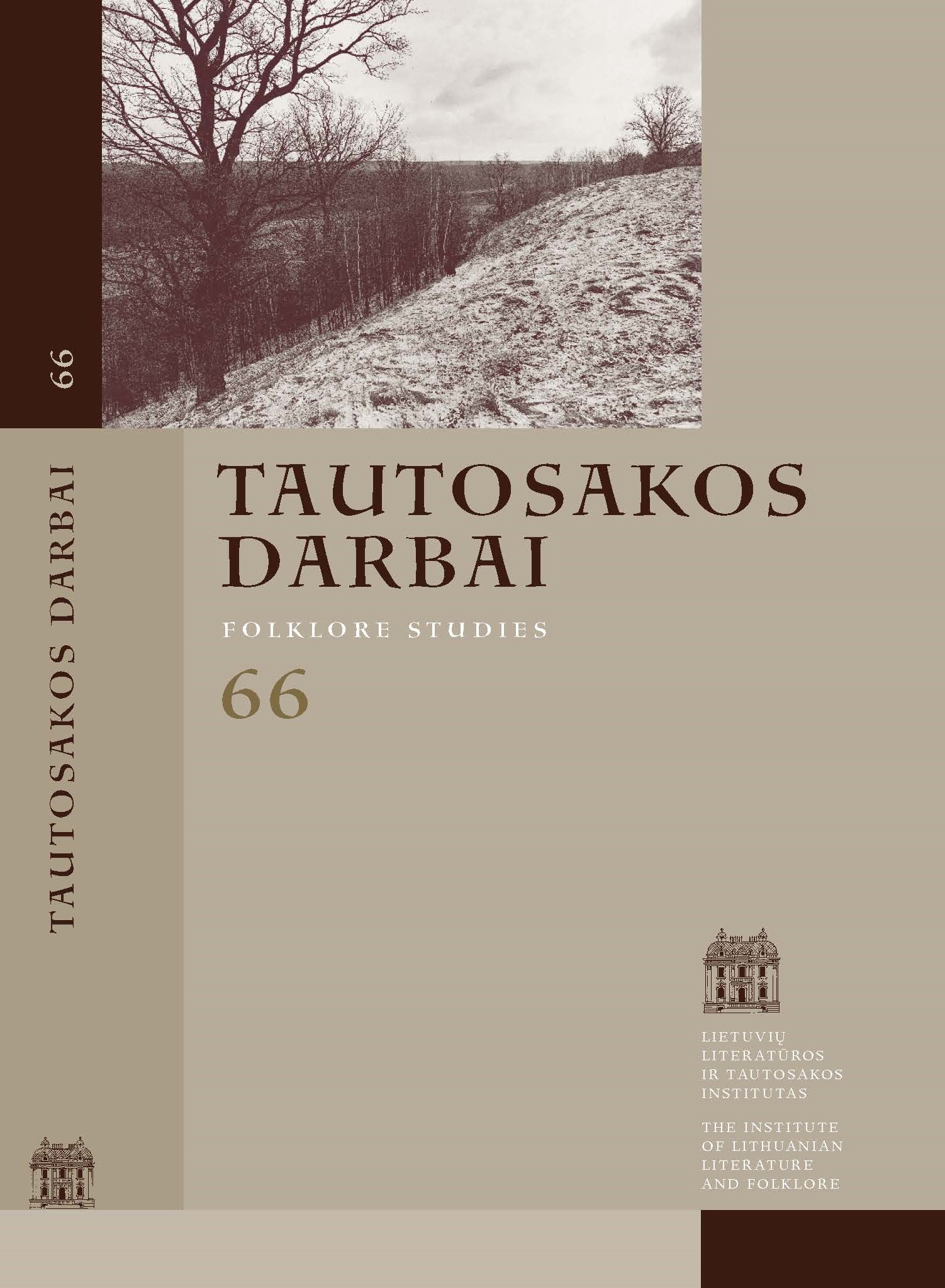Therapeutic Aspects of Traditional Music during Pregnancy, Childbirth and the Postpartum Period
Abstract
The purpose of this study is to reveal the benefits of traditional music for women’s psychosocial wellbeing and its applicability in music therapy during the birth-transition, i. e. during pregnancy, childbirth and the postpartum period. Some Lithuanian women use traditional music for self-help during their own birth-transition or working with pregnant women and mothers. On the other hand, we still lack interdisciplinary research on the therapeutic value of traditional music. This article analyzes a previously unexplored phenomenon of employing traditional music to improve the psychosocial wellbeing of pregnant women and mothers. The study presents experiences, insights and testimonies of the young mothers and doulas who assisted them regarding the value of traditional music while expecting the baby, giving birth, and raising the child. For this study, we deliberately selected educated women who are members of the folk singing groups and practice folklore in their everyday life.
In the article, pregnancy, childbirth and the first weeks after it are regarded as a transition period between different stages of a woman’s life. It is characterized by the sense of liminality, identity transformation, and the related emotional peak. The research has shown that the interviewed women practiced folk singing, listened to the traditional music or music performed on the traditional instrument kanklės, danced to traditional dance music during pregnancy in order to creatively release tension, improve emotional state, reduce anxiety, prepare for the childbirth, or simply make everything easier. Meanwhile, singing folksongs and lullabies to the baby during pregnancy and the postpartum period was a natural way to establish a relationship, to express motherly love, to convey values and a certain worldview.

This work is licensed under a Creative Commons Attribution 4.0 International License.
Downloads
Most read articles in this journal
- Jonas Tilvikas, Attitudes of the Inhabitants of the Lithuania Minor towards the Medical Treatment in the First Half of the 20th Century , Tautosakos darbai: Vol. 52 (2016)
- David Atkinson, Relationships in Eighteenth-Century Ballads – Negotiation, Ideology, Imagination , Tautosakos darbai: Vol. 59 (2020)
- Jurga Dzikaitė, Reflections of the Lithuanian World in the Literature Textbooks from the DP Camps: Analyzing the Concept of Folklore , Tautosakos darbai: Vol. 59 (2020)
- Monika Bogdzevič, The Cognitive Representation of SHAME in Lithuanian and Polish Paremias , Tautosakos darbai: Vol. 58 (2019)
- Eglė Gelažiūtė-Pranevičienė, Shifts in Authenticity: Electronic Dance Music as Environment for Contemporary Folklore Forms , Tautosakos darbai: Vol. 61 (2021)
- Aušra Žemyna Kavaliauskienė, Ethnographic Character of the Novel “Vilius Karalius” by Ieva Simonaitytė in the Context of Lithuanian Wedding Customs and Rituals of the 19th – the First Half of the 20th Century , Tautosakos darbai: Vol. 57 (2019)
- Martynas Vingrys, Lithuanian Obscene Paremias: Peculiarities of Recording and Publication , Tautosakos darbai: Vol. 65 (2023): Tautosakos darbai
- Oksana Mykytenko, My Small Apple Has Rolled Away: Poetic Peculiarities of Funeral Laments for Children in Ukrainian and South Slavic Folklore Traditions , Tautosakos darbai: Vol. 59 (2020)
- Ramunė Bleizgienė, Under the Hood of Ideology: What Was the Soviet Family Life? , Tautosakos darbai: Vol. 65 (2023): Tautosakos darbai
- Ainė Ramonaitė, Polyphony and Multidimensionalism of the Traditional Music , Tautosakos darbai: Vol. 53 (2017)




